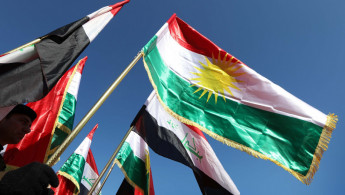Iraqi government to directly pay KRG employees following Supreme Court order
Iraq's finance minister, Tayif Sami, announced on Monday that her ministry will promptly disburse salaries to employees and retirees of the Kurdistan Regional Government (KRG) as soon as the formal payroll is received from the Kurdish authorities.
This decision follows last week's directive from Iraq's top court, which ordered the Iraqi federal government to 'nationalise' salaries of the northern region's public payroll.
Sami today affirmed that the salaries of the public sector employees in Iraq and the northern Kurdistan region for 2024 are fully secured, according to Iraq's State News Agency (INA). Her statements came following her meeting with members of the financial committee in the Iraqi parliament.
She also indicated that sending financial entitlements for February salaries of the KRG employees is contingent upon the submission of the formal payroll lists by the KRG's Ministry of Finance and Economy.
Iraq's Supreme Federal Court on Wednesday, February 23, ruled that the KRG should hand over all oil and non-oil revenues to Baghdad. The court also obligated the Iraqi federal government to pay the salaries of the KRG civil servants, and the KRG should cooperate with Baghdad in this regard.
The New Arab contacted the KRG Ministry of Finance and Economy media office for comment, but it did not immediately respond.
Additionally, she emphasized that the KRG must establish accounts for almost all public sector employees, retirees, and social welfare beneficiaries at specific government or authorized private banks by the end of March. This step ensures that their future payments can be sent promptly via wire transfers.
In 2014, Iraqi Kurdistan began exporting oil to Turkey independently, causing tension with Baghdad. The KRG needs 940 billion Iraqi dinars monthly to pay salaries for over 1.2 million civil servants. However, since March 25, 2023, Ankara halted importing 450,000 barrels from Kurdistan due to an international ruling favouring Baghdad's control over Iraqi oil exports. Consequently, the KRG relies on Baghdad to allocate its budget share for timely salary payments.
Sami also indicated that the 2024 budget law amendments will be sent soon to the Iraqi Council of Ministers for approval and then to the Iraqi Parliament for approval.
On his part, Attawan Al-Attawani, head of the parliamentary finance committee, affirmed that all entitlements of the KRG employees, retirees, and those on the social welfare system would be funded from the KRG's share of the federal budget for 2024, stressing that the funding should not exceed 12.67%.
In June 2023, Iraq's parliament approved a three-year budget bill of nearly 198.9 trillion dinars (US$153 billion), the largest in the country's history.
According to the law, the semi-autonomous Kurdish region must first deliver 400,000 barrels per day (bpd) to the federal authorities, along with half of the non-oil revenues, before receiving a share of 12.6 per cent of the federal budget.
The Iraqi Federal Supreme Court, the highest court in the country, in mid-February 2023, declared the Kurdistan region's oil and gas law as void.
The tribunal run by the International Chamber of Commerce (ICC) ordered Turkey to pay Baghdad damages of US$1.5 billion for allowing the KRG to export oil between 2014 and 2018 without the Iraqi government's consent.
So far, Ankara is not willing to pay the money owed to Baghdad, hence it has not agreed on the resumption of oil exports from the Kurdistan region through a pipeline to its territories and ports on the Mediterranean Sea.




 Follow the Middle East's top stories in English at The New Arab on Google News
Follow the Middle East's top stories in English at The New Arab on Google News

![A group of Palestinians, foreign and Israeli activists gather to participated in an olive picking event on the land in the town of Battir, which is under threat of confiscation by Israel in Bethlehem, occupied West Bank on 8 November 2024. [Getty]](/sites/default/files/styles/image_330x185/public/2182930803.jpeg?h=199d8c1f&itok=__0LgGsa)
